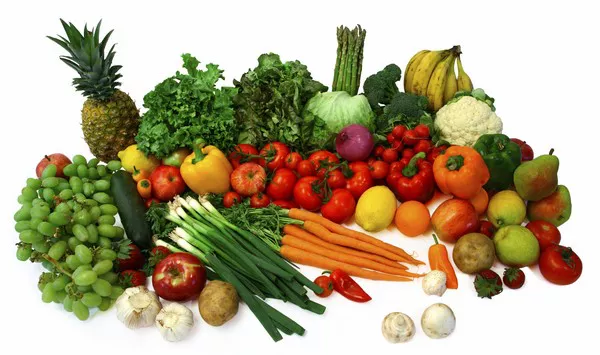Metabolism plays a crucial role in maintaining energy levels, weight management, and overall well-being. While lifestyle factors like exercise and diet have a significant impact on metabolism, certain vitamins also play a pivotal role in supporting metabolic processes. In this article, we’ll delve into the world of vitamins that boost metabolism, exploring their functions, sources, and the ways they contribute to a healthy and efficient metabolic rate.
The Role of Metabolism
1. Energy Production: Metabolism encompasses the chemical processes that occur within the body to convert food into energy. A healthy metabolism ensures that the body efficiently uses calories for daily activities and bodily functions.
2. Weight Management: An optimized metabolism aids in weight management by regulating calorie expenditure. A faster metabolic rate can help burn more calories, making it easier to maintain a healthy weight.
Vitamins that Support Metabolism
1. Vitamin B Complex: The B vitamins, including B1 (thiamine), B2 (riboflavin), B3 (niacin), B5 (pantothenic acid), B6 (pyridoxine), B7 (biotin), B9 (folate), and B12 (cobalamin), are essential for energy metabolism. They play key roles in converting nutrients into energy and assisting in the breakdown of carbohydrates, fats, and proteins.
2. Vitamin D: Vitamin D is essential for bone health and has also been linked to metabolism. Studies suggest that adequate vitamin D levels may support a healthy metabolic rate and weight management.
3. Vitamin C: Vitamin C is known for its immune-boosting properties, but it also contributes to metabolic processes. It helps convert glucose into energy and supports the metabolism of fats.
4. Vitamin E: Vitamin E is an antioxidant that helps protect cells from damage. It may also play a role in metabolic processes by supporting the utilization of oxygen during physical activity.
Functions of B Vitamins
1. B1 (Thiamine): Thiamine is essential for converting carbohydrates into energy and supporting nerve function. It’s involved in the breakdown of glucose, which provides energy for the body.
2. B6 (Pyridoxine): Vitamin B6 is crucial for protein metabolism and the production of neurotransmitters that regulate mood and sleep. It also helps release stored glucose for energy.
3. B12 (Cobalamin): B12 is involved in the metabolism of fatty acids and amino acids. It plays a role in the synthesis of DNA and RNA and is important for nerve health.
See Also: Why Are B Vitamins Called B Vitamins: What You Want to Know
The Vitamin D-Metabolism Connection
1. Regulating Hormones: Vitamin D receptors are found in many tissues throughout the body, including those related to metabolism. It may help regulate hormones that influence metabolism, such as insulin and thyroid hormones.
2. Weight Management: Research suggests that vitamin D deficiency may be linked to obesity and insulin resistance. Ensuring adequate vitamin D levels may help support weight management and metabolic health.
See Also: Where Do We Get Vitamin D: Things You Need to Know
Vitamin C and Energy Metabolism
1. Carnitine Synthesis: Vitamin C is involved in the synthesis of carnitine, a compound that plays a role in transporting fatty acids into cells to be used as energy.
2. Mitochondrial Function: Mitochondria are the “powerhouses” of cells, responsible for producing energy. Vitamin C helps protect mitochondria from oxidative stress and supports their optimal function.
See Also: 9 Important Roles of Vitamin C
Antioxidant Properties of Vitamin E
1. Free Radicals and Metabolism: During metabolic processes, the body produces free radicals, which can cause cellular damage. Vitamin E’s antioxidant properties help neutralize these harmful molecules.
2. Cellular Energy Production: Vitamin E supports the utilization of oxygen during physical activity, which is essential for efficient energy production. It may also enhance endurance and overall energy levels.
See Also: Why Vitamin E Matters: 5 Health Benefits
Sources of Metabolism-Boosting Vitamins
1. B Vitamins: Sources of B vitamins include whole grains, lean meats, poultry, fish, dairy products, eggs, legumes, and leafy greens.
2. Vitamin D: Vitamin D can be obtained from sunlight exposure, fortified foods, fatty fish (such as salmon and mackerel), and supplements if necessary.
3. Vitamin C: Citrus fruits, strawberries, bell peppers, broccoli, and tomatoes are excellent sources of vitamin C.
4. Vitamin E: Nuts, seeds, vegetable oils, spinach, and fortified cereals are rich in vitamin E.
Balancing Nutritional Intake
1. Whole Foods Approach: Getting vitamins from a variety of whole foods is the best way to ensure a balanced intake. Focus on a diverse diet that includes nutrient-rich options.
2. Consultation with Professionals: Consult a healthcare professional before making significant changes to your diet or supplement regimen. They can help determine if supplementation is necessary based on your individual needs.
Conclusion
In conclusion, certain vitamins play a vital role in boosting metabolism and supporting overall health. The B vitamins, vitamin D, vitamin C, and vitamin E are all essential for energy production, nutrient utilization, and maintaining a healthy metabolic rate. By incorporating a balanced diet rich in these vitamins and engaging in regular physical activity, you can optimize your metabolism and promote weight management. Remember that a holistic approach to health, which includes a well-rounded diet and a healthy lifestyle, is key to supporting your body’s metabolic processes and overall vitality.


